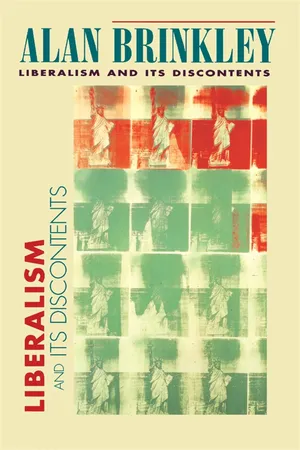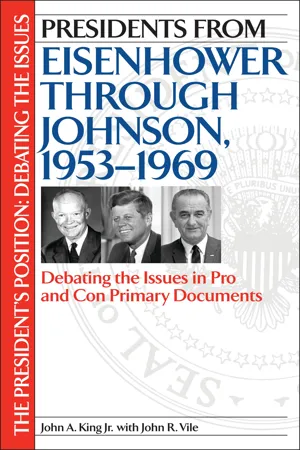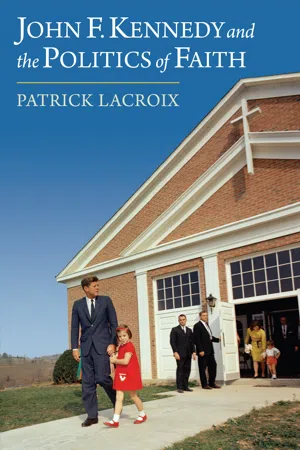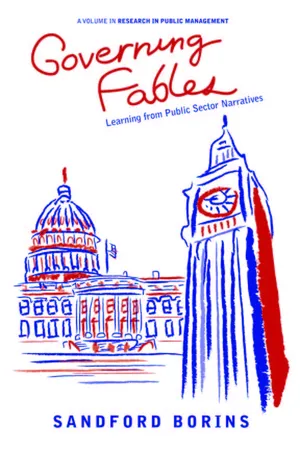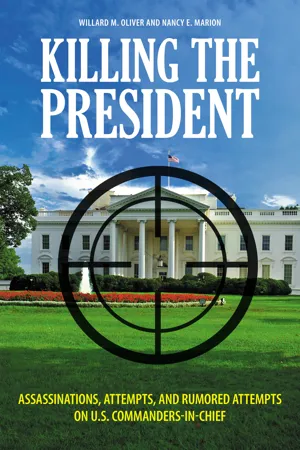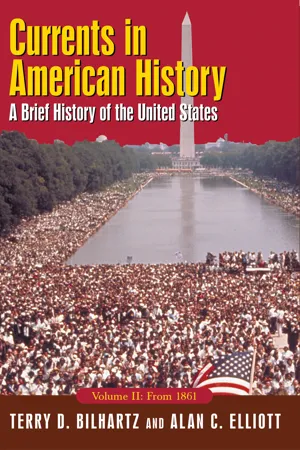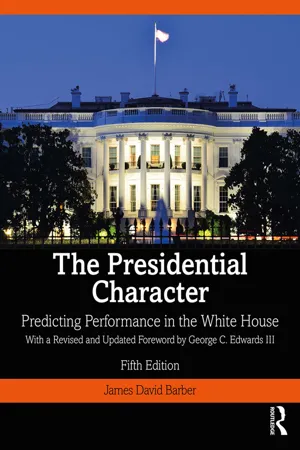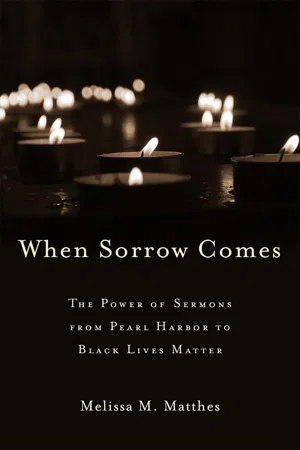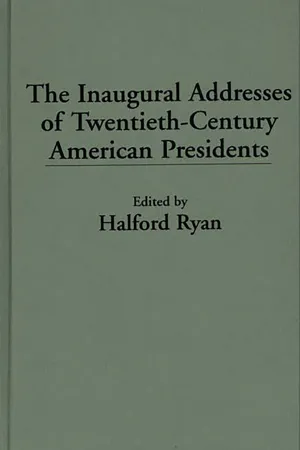History
President Kennedy
President John F. Kennedy, often referred to as JFK, was the 35th President of the United States. He is remembered for his charismatic leadership, advocacy for civil rights, and his ambitious vision for space exploration, which led to the Apollo moon landing. His presidency was tragically cut short when he was assassinated in 1963, leaving a lasting impact on American history.
Written by Perlego with AI-assistance
Related key terms
1 of 5
9 Key excerpts on "President Kennedy"
- eBook - PDF
- Alan Brinkley(Author)
- 2000(Publication Date)
- Harvard University Press(Publisher)
John Kennedy served in ofªce for fewer than three years. His tangible accomplishments during his foreshortened term were relatively mod-est. By most of the normal standards by which historians assess presi-dents, Kennedy seems now to be an undistinguished, even a minor ªgure. Indeed, a survey of historians in 1981, asking them to rank the presidents, placed Kennedy 13th. Another survey, conducted in 1996 by the New York Times, again placed him about in the middle of the pack. The historical John Kennedy, as opposed to the Kennedy of leg-end, was a cautious, practical, skillful politician, driven by political real-ism much more than by lofty ideals. Members of his administration boasted that, unlike some of the militant cold warriors of the 1950s, they were pragmatists, not ideologues. Kennedy himself seemed to move through his political life as a slightly bemused observer of his own success, as if reluctant to take himself or anything he did too seriously. It is one of the many ironies of Kennedy’s posthumous image that a man who was himself so uncomfortable with passionate commitment would inspire so much of it in others. 3 Th e Posthumous Lives of John F. Kennedy 211 As president, as through his pre-presidential career, Kennedy walked gingerly through difªcult moments and difªcult issues, always search-ing for a middle ground, always leery of creating unnecessary conºict. He was slow to embrace the civil rights movement, uncertain in his relations with the corporate world, conservative in his embrace of Keynesianism, awkward in his dealings with Congress. Through most of his presidency, his foreign policy was largely reactive, driven by ex-ternal events rather than by a coherent sense of goals. A plan by the Eisenhower administration drove him into the Bay of Pigs. A decision by Nikita Khrushchev drove him into the Cuban missile crisis. A decade of precedent led him reluctantly into Vietnam. - eBook - PDF
Presidents from Eisenhower through Johnson, 1953-1969
Debating the Issues in Pro and Con Primary Documents
- John King, John R. Vile(Authors)
- 2005(Publication Date)
- Greenwood(Publisher)
74 FROM EISENHOWER THROUGH JOHNSON Many viewed him as duplicitous and untrustworthy, an image that ultimately earned him the nickname "Tricky Dick." Like many of politicians of the day, both Nixon and Kennedy were Cold Warriors. As in the election of 1952, the election of 1960 put the track record of the incumbent party on foreign policy to the test. Kennedy consistently criticized the Eisenhower Administration for allow- ing a "missile gap" to develop between the Soviet Union and the United States. Even though Kennedy did not chastise Eisenhower for "losing Cuba," as Eisenhower had lambasted Truman during the campaign of 1952 for "losing China," he discussed and supported an invasion of Cuba in order to remove Fidel Castro, the communist leader who assumed power on the island in 1959. THE NEW FRONTIER Ordinary Americans may have been more energized by the Kennedy victory in 1960 than were most intellectuals and politicians. Democrats lamented their loss of twenty seats in the House of Representatives that accompanied Kennedy's presidential win, and Republicans questioned whether Kennedy would be able to accomplish much. Kennedy's centrist campaign had hardly broached tough topics like civil rights, and offered little of substance during the campaign that predicted dramatic change. Still, the new president inspired a great many Americans. The youngest person ever elected to the American presidency, Kennedy, and his beautiful young wife, Jacqueline (Jackie), exuded charm and style. Kennedy's enthusiasm and idealism brought unprecedented energy and optimism to America. - eBook - ePub
- Patrick Lacroix(Author)
- 2021(Publication Date)
- University Press of Kansas(Publisher)
Yet, even amid the wealth of available firsthand resources from the early 1960 s, the matter of President Kennedy’s personal beliefs poses its own set of historical and methodological challenges. In a recent New York Times article, executive editor Jill Abramson depicted an “elusive” Kennedy, a president who, despite the thousands of works published on his life and administration, remains ill-defined. An “oddly polarized literature” has resulted in “a kind of void,” Abramson argues. Predictably, she does not address Kennedy’s faith. But here, too, scholars must confront an elusiveness complicated by a dearth of original material that would define the president’s Catholicism, his personal views, or even his moral sense. The present study is therefore far less definitive on this point. 12 To be sure, like all presidents, Kennedy frequently made religious claims in an official capacity. While in the White House, he perpetuated the Cold War rhetoric of Truman and Eisenhower: in the worldwide struggle against Communism, a “Judeo-Christian” national identity had become central to Americans’ self-definition. In 1961, at the annual National Prayer Breakfast, organized by the nondenominational International Christian Leadership Conference and held just three weeks after his inauguration, Kennedy insisted on the importance of the country’s religious ideals. In his view, those who had established the United States, irrespective of their religious denomination or their region, were united by two principles: “strong religious conviction” and commitment to “a system of freedom.” In the present “time of trial,” Americans ought to “call upon [their] great reservoir of spiritual resources” and place their trust in God. Through such ceremonial enactments, Kennedy provided symbolic political sanction to the religious fervor inherited from the 1950 s. His rhetoric was uncontroversial: he was fulfilling the “civil-religious” duties described by sociologist Robert N - eBook - PDF
- Sandford Borins(Author)
- 2007(Publication Date)
- Information Age Publishing(Publisher)
Kennedy’s profile of the president-hero is now all but complete. Only one attribute remains to be addressed, but it is, for the author, of the ut- most importance: the human factor, the powers of empathy and compas- sion which the president repeatedly displayed even at the height of the crisis. It was not merely his constant awareness of the generations of chil- dren whose fates rested in his hands. It was, equally, a capacity to extend his insight into the mind of his adversary, to empathize, to see with a largeness of vision that transcended the more limited capacities of even his closest ad- visors, coupled with the moral courage to insist on the validity of that vision: “Against the advice of many of his advisers and of the military, he decided to give Khrushchev more time. ‘We don’t want to push him to a precipitous action—give him time to consider. I don’t want to put him in a corner from which he cannot escape’” (Kennedy, 1969, pp. 76–77). This aspect of the president’s response is so important for Kennedy, he returns to it again at a later point in his narrative. What is fascinating about his analysis here is the way in which the subject himself frames the issue as a question of narrative, the story that will be told of the events he is then enacting: ”I am not going to follow a course which will allow anyone to write a compa- rable book about this time [comparable to Tuchman’s The Guns of August], The Missiles of October,” he said to me that Saturday night, October 26. “If anyone is around to write, after this, they are going to understand that we made every effort to find peace and every effort to give our adversary room to move. I am not going to push the Russians an inch beyond what is neces- sary.” (p. 127) This is the actor on the stage of history, conscious of the judgment of future generations. It is the leader called forth by an extraordinary crisis - eBook - PDF
Killing the President
Assassinations, Attempts, and Rumored Attempts on U.S. Commanders-in-Chief
- Willard M. Oliver, Nancy E. Marion(Authors)
- 2010(Publication Date)
- Praeger(Publisher)
7 She would bring a touch of glamour to the White House, and was well liked by the public and foreign officials. Together they had two children, Caroline and John Jr. Kennedy was elected again to the Senate in 1958. But in 1960, he ran for president on the Democratic ticket against the Republican candidate, Vice President Richard Nixon. Kennedy won the election by a slim margin and, at age forty-three, was the youngest man ever elected to the presidency. He proved a very popular president with the American public. While in office, Kennedy’s major foreign policy concern was the Cold War with the Soviet Union. Since Cuban leader Fidel Castro had come into office in 1959, Cuba had become increasingly friendly with the Soviet Union. The thought of having a Soviet ally so close to the Florida shore made many Americans nervous. On April 17, 1961, 1,400 Cuban exiles, trained and armed by the CIA, landed at the Bay of Pigs in Cuba to lead a revolt against Castro. But few Cubans joined them, and the promised U.S. air support never came. Castro’s forces fought them for three days, at which time the surviving 1,100 soldiers surrendered. In the end, the invasion was a disaster, and President Kennedy was forced to take the blame for a major blunder at the very beginning of his administration. In 1962, the United States paid Cuba $53 million in food and medical supplies for the release 114 KILLING THE PRESIDENT of the surviving soldiers. The invasion had been planned by the Eisenhower admin- istration, but President Kennedy approved its execution and accepted full responsi- bility for its failure. 8 The invasion was a great embarrassment to Kennedy. In October 1962, Kennedy again faced an international crisis involving Cuba and the Soviet Union. U.S. intelligence discovered that the Soviet Union was building nuclear missile bases on Cuba that were capable of hitting the eastern portion of the United States, as well as areas in Latin America. - eBook - ePub
Currents in American History: A Brief History of the United States, Volume II: From 1861
A Brief History of the United States, Volume II: From 1861
- Alan C. Elliott, Terry D. Bilhartz(Authors)
- 2023(Publication Date)
- Routledge(Publisher)
Sputnik launching and once again felt, if not secure, at least confident. True, the nation no longer held a monopoly on atomic technology as it did in 1945, but, it still was the first among equals in the development and delivery of nuclear weaponry. If the Soviets had more powerful missile boosters, this largely was because their cruder and heavier warheads, owing to inferior technology, demanded greater lift than the American counterparts. Moreover, the United States, with its high-flying U-2 spy planes with cameras on board sensitive enough to read license plate numbers on the streets below, could keep a close eye on the intercontinental ballistic missiles (ICBMs) that the Soviets were producing. Both superpowers had enough weapons to destroy the world several times over, but the United States at least could take comfort in knowing that it was not outgunned.After winning the election, Kennedy came to symbolize the can-do spirit that energized America in the early 1960s. Elected at age forty-two, younger than any man in history, Jack Kennedy, with his elegant and beautiful thirty-one-year-old bride, Jackie, replaced the oldest man ever previously to occupy the White House. Kennedy's family and staff, which included the boyish, thirty-five-year-old attorney general Robert Kennedy, played touch football, not golf. The glamorous style of Jack and Jackie caused such a stir that reporters began to use the Greek word charisma to describe the growing Kennedy mystique. Good looks, poise, charm, self-assurance, energy, and intelligence characterized both the president and the first lady. Kennedy's cabinet appointments, labeled by author David Halberstam as the “best and the brightest,” also looked sexy when contrasted with the staid businessmen of the Eisenhower administration.“The world is changing,” proclaimed Kennedy in his acceptance speech. “We stand on the edge of a New Frontier… of unknown opportunities and perils… the New Frontier of which I speak is not a set of promises—it is a set of challenges.” At his inauguration, he returned to these same themes of opportunity, optimism, and sacrifice: - eBook - ePub
The Presidential Character
Predicting Performance in the White House, With a Revised and Updated Foreword by George C. Edwards III
- James David Barber, James Barber(Authors)
- 2019(Publication Date)
- Routledge(Publisher)
45Once re-elected, perhaps by a massive margin such as the Democrats won in 1964, would Kennedy have carried through on this intention or would he have found yet another reason for postponement? We will never know.There remained the question of commitment, James MacGregor Burns' question: "What great idea does Kennedy personify? In what way is he a great leader of thought? How could he supply moral leadership at a time when new paths before the nation need discovering?" Kennedy faced up to the question of commitment in civil rights.A man's inner commitment—especially a politician's—is much harder to discover than his external behavior. Sorensen says thatIn 1953 John Kennedy was mildly and quietly in favor ot civil rights legislation as a political necessity consistent with his moral instincts.In 1963 he was deeply and fervently committed to the cause of human rights as a moral necessity inconsistent with his political instincts.46Schlesinger reports that civil rights leaders in the late fifties considered Kennedy "sympathetic" but "detached"; as Martin Luther King, Jr., put it, Kennedy showed "a definite concern" but not a "'depthed' understanding." In between that time and late 1963, the Negro revolution ran forward. Kennedy ran, not too fast, with it; along the way he discovered what he believed.During the 1960 campaign Kennedy talked tough. "Only a President willing to use all the resources of his office can provide the leadership, the determination and the direction ... to eliminate racial and religious discrimination from American society." Again and again he charged that the Eisenhower administration had failed to eliminate discrimination in federally financed housing, an act the President could (and, he implied, this President would) end with the "stroke of a pen." Early that year the sit-ins had started; in the ex-Confederate South, six years after Brown vs. Board of Education, - eBook - PDF
When Sorrow Comes
The Power of Sermons from Pearl Harbor to Black Lives Matter
- Melissa M. Matthes, Melissa M. Matthes(Authors)
- 2021(Publication Date)
- Harvard University Press(Publisher)
” 14 His death was perceived to transcend what could be signified by a transient, impromptu memorial. The event was too co-lossal for such a puny shrine. This elevation meant that ordinary Amer-icans felt insufficient in the face of their gigantic loss. In part because of this church-like ambience, ministers played an important role in framing how Americans might make sense of the tragedy. Who and how Americans mourned was not only of theological importance but of political significance as well. In 1963, according to Gallup polls, 69 percent of Americans identified as Protestants and 24 percent as Catholics; only 2 percent said they had no religious affili-ation. 15 Also, over 55 percent of ministers in the United States were under the age of forty-five in 1963, 16 adding to their likely sense of identifica-tion with the assassinated forty-six-year-old president. But the Kennedy assassination was not a crisis in which the durability of the United States itself was understood as genuinely at risk, although there were deep suspicions about the threat that Soviet and Cuban Com-munism posed to American stability. Many Americans envisaged that a bulwark against this insidious infestation had to be secured. Thus, this tragic event compelled Americans to reassess the meaning of their col-lective life. We A ll Ki lle d Kenn e d y 83 This was also a particularly modern crisis, because in modernity human beings feel themselves abandoned in the eye of the hurricane, out of which each believes they must somehow conceive meaning anew. 17 Without secure foundations, elements of life that once seemed settled, even natural, are reinterpreted and contested. In 1963, Americans were more likely to experience anything unexpected or startling as a crisis, in part because there was precious little they collectively took for granted. - Halford Ryan, Halford Ryan, Halford R. Ryan(Authors)
- 1993(Publication Date)
- Praeger(Publisher)
Just as Kennedy sought to reconstitute the people and relations among nations, so too he sought to reconstitute the world in which Americans lived. The idealism of cooperation and sacrifice were counterbalanced by an acute sense of cosmic urgency about the state of the world, in stark contrast to the placid composure of the Eisenhower administration. This third theme of crisis was expressed in these ominous words: "In the long history of the world, only a few generations have been granted the role of de- fending freedom in its hour of maximum danger." These words were not a rhetorical flourish but were consistent with the other two themes. If his call for cooperation were rebuffed by the Soviets, then sacrifice would be required of Americans to face the hard decisions of the very different world where "man holds in his mortal hands the power to abolish all forms of human poverty and all forms of human life." Al- though people would remember his calls for cooperation and sacrifice, it would be the aura of crisis that permeated and directed his adminis- tration. 27 JOHN F. KENNEDY, 1961 191 Finally, Kennedy certainly marked his understanding of the oppor- tunities presented by the presidency ("I do not shrink from these re- sponsibilities—I welcome them") as well as its limitations ("All this will not be finished in the first one hundred days" and "In your hands, my fellow citizens, more than mine, will rest the final success of railure of our course"). The address stresses the opportunities as befitting a new administration, but only two years later, both the president and his speech writer were stressing the limitations of presidential power. 28 Kennedy's inaugural address both fulfills and transcends the char- acteristics of the genre.
Index pages curate the most relevant extracts from our library of academic textbooks. They’ve been created using an in-house natural language model (NLM), each adding context and meaning to key research topics.
